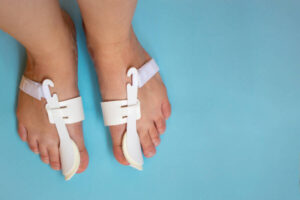Did you know that some habits can make your psoriatic arthritis worse?
Psoriatic arthritis is a health disease where your body’s immune system attacks your healthy tissue and cells. The immune response triggers inflammation in your joints and skin cell overproduction. According to experts, this immune system response is influenced by both environmental and genetic factors.
Keeping this chronic condition under control might require more than following the medication treatment your doctor has prescribed you. You can keep the symptoms under control and prevent more severe damage by also paying attention to your lifestyle and avoiding particular habits.
We’ve talked to different healthcare providers regarding psoriatic arthritis and things to do to keep it under control, and they’ve told us that your habits play a huge role in this. So, without further ado, here are all the things that can make your symptoms worse:

1. Eating whatever you want
If your diet has no structure and you put everything you want on your plate, it can be a problem sooner or later. You already know that a balanced diet is key to many health problems, but we get it: life gets busy, cravings kick in, food is more expensive than ever, and paying attention to what you consume can be hard at times.
You don’t need to follow a strict diet to see results. Focus on nutritious and lean foods 80% of the time and indulge now and then, but be mindful of portion control. Experts say one way to lower psoriatic arthritis symptoms is by limiting foods that trigger inflammation, such as processed foods (sugary foods and drinks and salty snacks), red meats, dairy, pastries, and certain nightshade veggies. Instead, focus on foods that nourish your body, like seeds, nuts, fresh fruits and veggies, greens, and lean proteins.
2. Having too many pounds
Experts say that the more unnecessary pounds you have, the more pressure you put on your joints, especially your knees.
Moreover, being overweight or suffering from obesity could impact the effectiveness of your treatment. Several studies showed that weight loss (in cases where the patient is overweight) improved the response to treatment used for psoriatic arthritis.
If you have too many pounds, you can talk to your doctor about a plan that will help you reach your goals without being too restricted. One thing you can do right now, as long as you have no pain or contraindications, of course, is try to walk for at least 15 minutes.
This will help you burn a few calories, clear your head, relax, and allow you to focus better on your tasks. After that, when you notice that it’s easy to walk for 15 minutes, you can increase the time and/or the intensity. However, if you have any trouble, make sure to talk to your doctor before starting any type of physical activity.

3. Being sedentary
Did you know that exercising can improve the blood circulation in your body and therefore prevent joint degeneration? Experts say that there’s a link between metabolism problems like obesity, hypertension, high cholesterol levels, and psoriatic arthritis, which is why people are always told to exercise and move their bodies as much as possible.
As long as you get the green light from your doctor that it’s ok for you to exercise, aim for at least 150 minutes of movement every week, or 30 minutes per day for 5 days. You can walk, do yoga, even stretch, dance, swim, bike, do strength training, do aerobics, or do any type of movement you find works for you.
You can also invest in a pair of resistance bands that you can use to work your entire body at home. Put them around your thighs or ankles to work your lower body, or use them for bicep curls, push-ups, or ab exercises.
4. Smoking
If you’re a smoker who suffers from psoriatic arthritis, this is your sign to spot this bad habit ASAP! According to experts, people who are diagnosed with this health condition and smoke are more likely to experience severe symptoms, such as fatigue and joint pain.
Moreover, studies showed that smoking might be connected to poor treatment adherence in patients with psoriasis and psoriatic arthritis. Doctors say that quitting smoking can help you improve your health and lower the symptoms’s effects, which will make you feel better and happier.

5. Stressing too much
If you’re constantly in a state of stress, you can make your psoriatic arthritis symptoms worse. A little stress every once in a while can be beneficial because it keeps you moving and helps you be more productive, but too much of it can cause serious harm.
When you’re stressed, your body releases cortisol and adrenaline, which make your muscles tense up. Moreover, too much stress can also impact your immune system’s inflammatory response as well as your digestive system, making you feel sick.
Even though it can be hard to completely avoid stress, you can try different techniques to keep it under control. Try yoga, meditation, and tai chi to relax your body and mind and have a restful night of sleep.
…Speaking of sleep, this is another factor that can make your psoriatic arthritis worse, so keep reading to discover more about it!
6. Not having a sleep schedule
Another reason why your psoriatic arthritis symptoms are so severe is because you don’t have a set sleeping schedule. While inflammation can cause poor sleep quality, it’s important to find a nighttime routine that will help you wind down and rest during the night.
You should avoid bright lights and limit your screen time to at least an hour before bed. Try to drink camomille tea and read a book before going to bed, because they’ll relax you and make you sleepy. Make sure your mattress is comfortable enough to support your hips and shoulders and invest in a pillow that properly supports your head and neck.
Other than that, wear comfortable clothing that allows your body to breathe, get a warm blanket, and good night. If you still have trouble falling asleep or you constantly feel tired when you wake up, schedule an appointment with your healthcare provider to find a solution for this issue.
7. Wearing the wrong clothes
It might be fun to wear fancy clothes to bed, but if your body feels restricted and uncomfortable and your psoriatic symptoms seem to be getting worse, you should pay more attention to your sleeping outfits.
According to doctors, wearing restrictive shoes or apparel might trigger new psoriasis activity in your affected area, and this phenomenon is known as the Koebner phenomenon.
Therefore, it’s important to choose shoes that fit well and are comfortable. Moreover, make sure that clothing is easy to put on and take off and doesn’t bind or restrict circulation. The safer option you could choose is a roomy set of pajamas that are made of cotton.
Pay attention to how you feel, and try to be active, eat healthily, wear comfy clothes, and lower your stress levels as much as possible. Don’t forget to also schedule regular check-ups with your doctor so that you always feel good.
Do you know of any other things that could make your psoriatic arthritis worse? Let us know in the comments below! If you enjoyed reading this article and you want to check out something else from Healthy Reads, here’s a good post for you: 10 Foods That Sound Healthy but Really Aren’t






